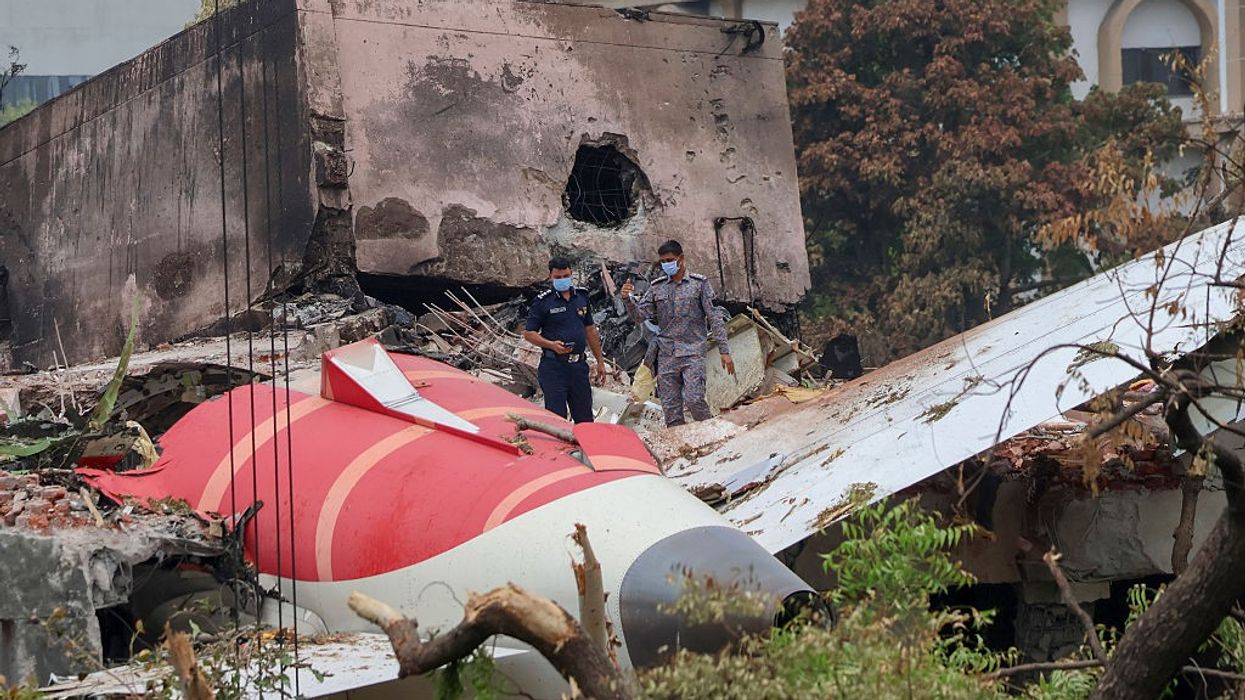RETIRED Air Force officer Dinesh K. has seen a surge in demand for his $500 (£397) therapy course to help people overcome their fear of flying since Air India flight 171 crashed moments after take-off from Ahmedabad two weeks ago.
Dinesh uses a combination of flight simulation and counselling at his Cockpit Vista centre for "fear of flying solutions" in Bengaluru, the only one in India. The centre has received more than 100 enquiries since the disaster, compared to a previous average of about ten a month.
"Fear of flying is typically to do with things happening on an aeroplane - the sounds, motion, vibrations ... exposure therapy is the only solution," Dinesh, 55, said during a tour of the facility where he demonstrated how cockpit controls relate to movements that often worry passengers.
The centre has a simulator for a Boeing and Cessna plane to help people experience how landings and takeoffs appear from the cockpit and understand that not every vibration or sound during a flight signals danger.
WhatsApp messages Dinesh received, and shared with Reuters, showed individuals complaining about "losing confidence" after the crash while others said it was "too hard on the brain".
A chilling 59-second CCTV clip showing the crash of the Boeing 787-8 Dreamliner, which killed 260 people, has been widely shared on social media and TV channels since the June 12 accident, which aviation and mental health experts said had led to an unusually high number of counselling requests.
Some travellers are becoming more choosy in selecting their airline and aircraft - Boeing or Airbus - while others are so anxious they are taking more drastic steps by rescheduling or cancelling their air travel plans altogether.
"I am filtering on the basis of not having to fly a Boeing ... I'm bloody terrified currently, and I don't want to get back on a flight," said London-based Indian marketing consultant Nidhi Bhatia, 25, who flew to Mumbai in an Air India Boeing 777 plane a day before the Ahmedabad crash.
Unlike India, Western countries have many more formal setups to help people tackle their fear of flying, in its most intense form known as aerophobia, as fatal crashes often spike worries among travellers across the world.
Days after an American Airlines plane collided with a helicopter in Washington, killing more than 60 people, a survey of 1,000 US consumers by research firm Prodege found 55 per cent of travellers had higher anxiety, while 38 per cent had reconsidered or cancelled travel plans.
Google Trends data shows searches for the term "flying fear" in India hit "peak popularity" a day after the Air India crash, and the phrase was still being widely searched.
Flying is typically seen as a safe mode of transport, and crashes during takeoff are especially rare. The International Civil Aviation Organization said there were 1.87 accidents per million departures in 2023, its most recent annual air safety report.
Of the nine hull loss accidents without fatalities recorded in 2024, only two occurred on take off, according to Airbus' website.
The airport CCTV recording from Ahmedabad shows the Air India plane rose to a height of 650 feet (198.12 m) after it took off, but suddenly lost altitude, crashing in a fireball into a nearby building -- all within 60 seconds.
The disturbing footage was a key cause of the panic among Indian travellers, five mental health experts said.
People were seeking help because they had developed insomnia or become obsessed with flight updates, they said.
Others were scared of letting their loved ones travel on planes, complaining of "debilitating anxiety" for their relatives in transit "to an extent where they have been unable to focus on their daily chores" because they are constantly checking messages to see if they have landed, said psychologist Pankti Gohel.
In Bengaluru, the £397 Cockpit Vista course is spread over 14 hours and led by Dinesh, who oversaw ground operations during the undeclared 1999 Kargil war between India and Pakistan and retired as an Air Force wing commander in 2014. He also offers to accompany worried clients on the first flights they take after completing the course.
Since the crash, many travellers fear travelling with Air India and are seeking alternative airlines, according to Jaya Tours, a mid-sized booking agency in Mumbai.
The Indian Association of Tour Operators, which represents more than 1,600 agents, said overall flight bookings dropped by 15-20 per cent soon after the Air India crash, while 30-40 per cent of booked tickets were also cancelled.
"We are getting very unusual questions about aircraft type. Earlier passengers didn't really care about what kind of aircraft it is," said the group's president, Ravi Gosain. "People don't want to hear about Dreamliners."
(Reuters)





